Cheap artane castle MSM AyubThe former Lanka Guardian Editor and a respected journalist, late Mervin de Silva while testifying before the Mosad Commission appointed by the former President Ranasinghe Premadasa in early nineties said that Sri Lankan leaders had pushed a politically passive community into active politics by inviting Israelis to train the troops.
He was referring to the Muslim politics that by then had started influencing the national politics following the advent of Sri Lanka Muslim Congress (SLMC) into the mainstream politics. Before that there was no Muslim politics as such except for the mostly Colombo based and provincial elite Muslims contesting at elections under the two main parties, namely the United National Party(UNP) and the Sri Lanka Freedom Party (SLFP).
By now Muslim politics has become so vital a component of national politics that the main Muslim political party, SLMC is usually called the A?a??A?king makerA?a??A? as in the case of Ceylon Workers Congress (CWC). With the announcement of the election for the newly created Eastern Provincial Council which was de-merged from the Northern Provincial Council by a Supreme Court ruling in October 2006 on a petition filed by the Janatha Vimukthi Peramuna (JVP), the significance of Muslim politics has ascended to a peak
This can be attributed mainly to the composition of the province which consists 33 percent of Muslims and the possibility of Muslims being the decisive factor in electing the rulers of the Province at the May 10 election, in the light of Muslim votes are apparently going to be less divided than the other two communities would be.
There are so many parties with Sinhalese leadership and Sinhalese nationalism in the fray and the two main parties and the JVP contesting on three fronts have the capacity to draw Sinhalese votes in bulk. Tamil votes would be drawn mainly by the Pillaian group and a portion of votes may be bagged by the UNP while a considerable number may be influenced by the LTTE either by way of persuading the people to abstain or winning them through its political party, PeopleA?a??a??s Front of Liberation Tigers (PFLT) which was registered with the Commissioner of Elections in 1989 during peace talks.
Although Muslim votes too would definitely be divided, Ashraff has so peculiarly inspired the majority of Eastern Muslims that they do not turn their backs to the SLMC even the high ranking leaders of the party would do so. This was why Rauff Hakeem could boast at the conclusion of the Batticaloa district Local Government election that SLMC has won 82 percent of the Muslim votes cast.
Another reason for the Muslim factor to be more in the limelight than the Pillaian group in this election, at least for the moment is that the Pillaian- United PeopleA?a??a??s Freedom Alliance (UPFA) marriage was long solemnized and it was a closed issue by the time of the announcement of Eastern Provincial Council election.
The UNP, as the opposition neither had any leverage nor did at least attempt to lure the group, while the SLMC, seemingly undecided kept the whole world in suspense as if open for auction. Knowing very well the advantage of being the talking point SLMC leaders readily and positively responded when Government leaders invited for talks in spite of their talks with the UNP had gone a long way ahead.
When Muslim ministers convened all Muslim political parties for a meeting claiming they want to form a Muslim alliance for the Provincial Council election in order to have a Muslim as the Chief Minister, the SLMC consented without questioning as to why the ministers are going to deprive the Government of Muslim votes in this crucial election and also as to why the Government did not utter a word against the Muslim ministers attempting to divest it of some of the precious votes.
As a seasoned politician Hakeem knew of the advantage of being in the limelight through this move too, although he did not want such an alliance which cannot win given the combined strength of the UPFA and TMVP. However, Hassan Ali, SLMC General Secretary had confided with a Daily Mirror journalist that the Ministers are up to drag the talks until the nomination day, so that the SLMC would not be able to finalize any strategy with the UNP against the Government.
Former Deputy Minister MLAM HisbullahA?a??a??s cross over to the ruling party from the SLMC and the more stunning resignation of SLMC stalwarts including its leader Hakeem to contest at the less important Provincial Council apparently turned the race into one between the Muslim ministers and the SLMC
Communal attacks against the SLMC or any other minority party by leaders of majority community might help them to secure more support from the respective minority community. Already there has been one such attack that the SLMC is going to be a threat to Sinhalese and Tamils in the East, which if it continues will arouse Muslim sentiments in favour of SLMC. These kinds of communal provocations would identify Muslim feelings with the SLMC which in turn will convert them into votes and ultimately Hakeem will be benefited in his effort to ascending to the chief administrator of the province.
History has proven this point very vividly in the central hills long ago. The CWC and its former leader late Saumiyamoorthi Thondaman was repeatedly attacked for winning over A?a??A?everythingA?a??A? for estate Tamils and attempting to carve out a separate state called A?a??A?MalayanaduA?a??A? at the expense of Sinhalese. The grand old man once retorted to this writer that there is no need for anyone to carve out a Malainadu afresh, for it exists from the day God created the world. Malainadu in Tamil means hill country.
Saumiyamoorthy Thondaman was awarded with these kinds of A?a??A?creditsA?a??A? such as winning over A?a??A?everythingA?a??A? for the estate Tamils despite the fact that the estate sector has won the A?a??A?medalsA?a??A? through social indicators for lowest education, highest malnutrition, highest drunkenness, highest child mortality etcetera. However when he was attacked from outside the estate community emotionally set to defend him and he continued to be the king of the hills until his death.
Late Ashraff also had such benefits of vilification by outsiders.
Haste shown by the Government in slashing HakeemA?a??a??s security in a way implies the importance and the seriousness of SLMC for the Government. However, the attempt by the state to prune HakeemA?a??a??s security soon after he along with SLMC General Secretary Hassan Ali and Politburo member Basheer Segudawood resigned from the parliament will sometimes be another benefit for the SLMC, unless it leads to some disaster. This sometimes might help Hakeem to continually to be in the spotlight and thereby draw Muslim sympathy towards him.
Despite the fact that the Muslim factor has become a vital ingredient in the making of national politics and perhaps the most reckoned with element by all major parties at this Provincial Council election, it is seen by many as a fragmented force.
Because within two decades since mid-eighties the 1.5 million strong Muslim community has produced a series of political parties ironically agaist the wishes of the founder of the first Muslim party, the SLMC.
The founder of the SLMC late MHM Ashraff called on the Muslim community at the day of inauguration of the party on November 26, 1986 at the A?a??A?Pasha VillaA?a??A? in Maradana, Colombo not to create a second Muslim party in an event where the SLMC leadership fails to address the problems of the Muslim community, instead he suggested to throw the incumbent leadership away and find dynamic new leaders capable of facing the challenges of the day.
But to the utmost dismay of many in the Muslim community the second Muslim party emerged in three months in the name of Muslim United Liberation Front (MULF) led by MIM Mohideen who later joined the SLMC when Ashraff was in Chandrika KumaratungaA?a??a??s cabinet. With the death of Ashraff in an air crash over Mawanella in 2000 a plethora of Muslim parties have sprung in rival to the SLMC.
The National Unity Alliance (NUA) which Ashraff formed with the intention of gradually switching to national politics from communal politics, departed first from the SLMC with AshraffA?a??a??s widow Ferial heading it, and leaving the SLMC solely to the leadership of Rauff Hakeem, AshraffA?a??a??s confidant.
This occurred when President Chandrika Kumaratunga sacked Hakeem from the ministerial portfolio on June 21, 2001 for reasons known only to her, and Hakeem left the Government taking the sacking as a despiser on the party. However some SLMC leaders including Ferial Ashraff remained in the Government as ministers, deputy ministers and officials of various government and semi- government institutions and converged under NUA as a distinct party.
The Ranil Wikremesinghe regime between December 2001 and February 2004 saw another few splits in Muslim parties including in the SLMC. The then Deputy Minister MLM Athaullah broke away and formed the National Congress (NC) while businessman Naseer Ahmed created the Democratic United Alliance (DUA) distancing himself from the SLMC.
Then it was the turn of NM Shaheed PC to come up with his own party, All Ceylon Muslim Congress (ACMC), resigning from the Muslim Congress. Three SLMC parliamentarians, Rishad Badiuddeen, Najeeb A Majeed and Amir Ali who wanted to join the Chandrika Kumaratunga government parted with the Muslim Congress in October, 2004, ensuing which the infamous Kumari Cooray episode was staged. They also joined the ACMC.
Thus controversies over leadership, national list parliamentary seats, cabinet minister posts etcetera led to springing of a bunch of splinters and offshoots from the stem of SLMC.
By now there are around a dozen Muslim political parties in the country each claiming that it is the real heir to A?a??A?ThalaivarA?a??A? Ashraff and was trained in AshraffA?a??a??s school (pasarai). Each profess that it is the genuine guardian of the community A journalist from the East once attributed this mushrooming of Muslim parties to A?a??A?ambitions that infused by the A?a??A?ThalaivarA?a??A? into the ordinary peopleA?a??A? who before the advent of the SLMC could not even imagine to be elected at least to a village council that existed few decades ago.
Today most Muslim leaders who profess to be god fearing are in a position to drag The Almighty Allah, Holy Prophet and Holy QurA?a??a??an or any other sacred concept in Islam into their politics, even reciting qurA?a??a??anic verses on public platforms, purely to exploit the piety of the ordinary voters and grab money making positions.
Almost all of them agree on the problems of Eastern Muslims, especially on the land problem in the Pottuvil electorate and threats by the armed Tamil groups in Batticaloa and Trincomalee, but the question whether they can agree on solutions to those problems, given the divisions among them, in the face of the election is something only time will answer.
source:
House for sale in hazelwood artane http://www.dailymirror.lk/DM_BLOG/Sections/frmNewsDetailView.aspx?ARTID=11534
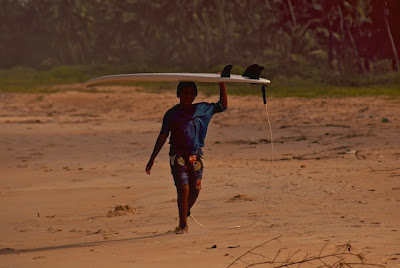
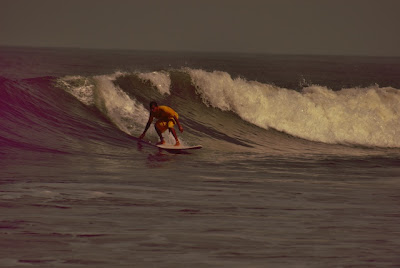
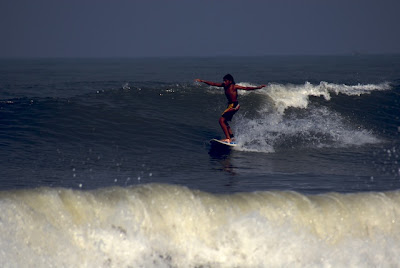
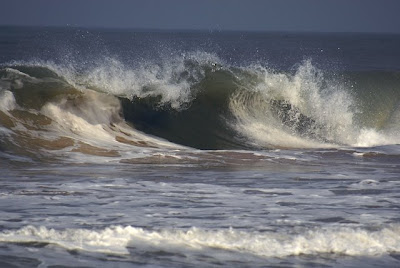

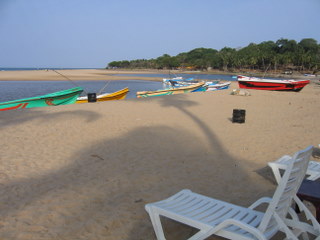





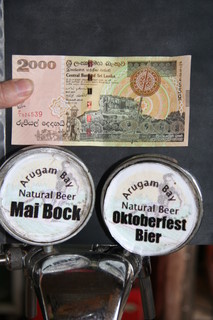













 Arugam Forum
Arugam Forum Arugam Photo Galleries on Picasa
Arugam Photo Galleries on Picasa Old Website
Old Website Press Coverage
Press Coverage Surf Forecast for Arugam Bay
Surf Forecast for Arugam Bay
31 May 2007 08:10:31 GMT Thanks very much for the interesting Blog. However, I am bemused by your choice of photo which actually shows the ICRC’s evacuation of some 150 stranded people – including a few aid workers – from Jaffna peninsula which was almost entirely cut off at the time the photo was taken. In what way is the photo connected to the subject of the story?Florian Westphal ICRC
31 May 2007 11:43:53 GMT Thanks for your note, Florian. The picture was not meant to imply a connection between the ICRC’s evacuation of stranded people from Jaffna and the subject of the blog. The intention was simply to show international aid workers in action in Sri Lanka, purely for illustrative purposes.
Order sinequan side 31 May 2007 14:35:29 GMT The blog has reminded me of something about NGOs in my own country, Ethiopia. Here many Ethiopians, including me, appreciate being employee of NGOs in general and the international ones in particular. It is not that much tough to guess why. The big salary is the major cause.Regarding the activites being accomplished by NGos here, many have different views. Some comments NGOs are working to meet their respective hidden objectives besides the ones they are stating openly. According to these people, no country has so far achieved sustainable development through NGos. They quote the renowned book, ‘Lords of Poverty’ in supporting their arguments. The other argument these groups put forward as weakness is that NGOs use their fund to employ citizens of the country where that NGO is originated. If the NGO is from Britain, it is inevitable that there will be British employees at higher positions. The NGOs do not care whether they can find local professinals that can do with lower salary what the foreigners do. They solely stick to their ‘principle’ of employing foreigners with huge salary. Moreover, according to their ‘principle’, the vehicles, and other materials should be imported from that country where the NGO is originated. For instance, Save the Children UK should have Lndrovers or other vehicles manufactured in Britain.The same is true for other NGOs. Taking this in to consideration many African countries see NGOs in suspicion.
05 Jun 2007 09:36:01 GMT You quote an aid worker in Batticaloa arguing that they need big SUVs because of a security issue. he goes on to say: ” NGOs can’t simply use a commuter van to get around in – otherwise they are not immediately identifiable.” However, the two local volunteers of the Red Cross who was shot dead in Sri Lanka were travelling by train! Perhaps, public transport is OK for them because they are not foreigners. The two men were picked up by gunmen from the Colombo Fort Railway station on June 1 and found shot dead the day after. Each SUV costs in excess of 20 million rupees in Sri Lanka. you can build 20 rural schools with that cash. or two rural hospitals…
Gout celebrex treatment 05 Jun 2007 09:38:45 GMT I am glad that you have tackled a subject that has rankled Sri Lankans for quite a while. May I say that you have only scratched the tip of the iceberg. To refer to just one point in your blog, I take umbrage at what the exasperated aid worker in Batticaloa has to say. Have you seen what these SUVs look like? Huge, flashy road-hoggers which look every inch the US $180,000 to US$ 250,000 that they cost. We are not asking Mr. Exasperated and his ilk to use public transport, but why canA?A?A?a??A?a??t they travel in less ostentatious, cheaper vehicles, with, if they want, the logos of their agencies emblazoned all over to make them easily identifiable? And what security issues is he referring to? Only last week, two Sri Lankan employees of the Red Cross who had to hoof it back home to Batticaloa by train were abducted at the railway station and brutally killed. That brings the number of Sri Lankan aid agency employees murdered in the last 10 mon! ths by unknown killers to 19. How many foreign aid workers have met with the same fate here? Most of the A?A?A?a??A?A?security issuesA?A?A?a??A?A? that foreign workers encounter here are the hostility they engender among the poor when they alight from such grand chariots. And, Ms Cooper, you have forgotten to include ODEL and the city nightclubs among the beneficiaries who receive foreign aid in this sad island of ours.
05 Jun 2007 11:28:39 GMT (CORRECTING earlier post, adding paragraph)You quote an aid worker in Batticaloa arguing that they need big SUVs because of a security issue. he goes on to say: ” NGOs can’t simply use a commuter van to get around in – otherwise they are not immediately identifiable.” However, the two local volunteers of the Red Cross who were shot dead in Sri Lanka were travelling by train! Perhaps, public transport is OK for them because they are not foreigners. The two men were picked up by gunmen from the Colombo Fort Railway station on June 1 and found shot dead the day after. Each SUV costs in excess of 20 million rupees in Sri Lanka. you can build 20 rural schools with that cash, or two rural hospitals. We are not even talking about the huge salaries foreign aid workers are paid. Ofcourse they need huge pay to come and work in a difficult place like Sri Lanka where caviar is duty free and Champagne is a tad too warm. It is clear that most of the NGO s are there to support their own staff.
08 Jun 2007 10:33:29 GMT Glenda, an excellent article tackling a very difficult issue and the first of its kind I have seen.I think the UN and other leading agencies need to set an example and they are the worst offenders driving around in massive land cruisers that the average person living in Sri Lanka simply cannot relate to. Average incomes in Sri Lanka are $60 per month for rural farmers. Income inequality in my opinion is the hidden problem in Sri Lanka that perpetuates the conflict which makes this article doubly relevant. Most analysts mention human rights issues and a minority fighting for rights and a government not willing to concede when talking about Sri Lanka. The other side to the story is about grinding poverty, cultural subjugation, language barriers, class barriers, traditional culture fighting for its place and perceived threats to Buddhism from western practices and Christianity. You may see from this how NGOs get linked to these problems, and therefore how their lifestyle and policies become a part of the conflict in Sri Lanka.
08 Jun 2007 11:52:15 GMT “I also have close connections with Sri Lanka and visited the East Coast many times. I am in close contact with a correspondent based in Arugam Bay since 1977. Dr. Miller embraced the IRCS in January 2005 and offered all his facilities and premises to them – for free. What happened to this relationship? Why is the biggest Red Cross supporter now their biggest and most cynical critic? The same seems to have happened with the Swiss Red Cross – an investigation is on the way here in Swiss. I am informed a home grown, locaL report will soon be published on www.arugam.info And by all accounts the Red Cross will come out very badly indeed.
08 Jun 2007 11:52:49 GMT I have seen the deplorable and dishonest way the Red Cross behaved at PottuVille and specially at badly affected Arugam Bay. Ask anyone there and you will earn that this formerly great organization has totally lost the initial respect of local residents. I have contributed my own personal observations to a forthcoming article on a local web site. What is written above is a huge understatement. I feel the public has to beef up the PR against the behaviour of the mighty ENJOY’s and counter their own well paid propaganda. Thomas, Colombo
24 Jun 2007 10:31:22 GMT I am glad that Glenda Cooper pointed out what most Sri Lankans (except those who directly work as local staff to NGOs) have come to loathe as the International Disaster Industry. On my visits to my hometown in Sri Lanka I have seen many examples of bogus aid programs by these NGOs. I also found that some NGOs transfer large sums of US dollars back to their home countries via black market foreign currency traders. Now, can someone tell me how aid workers can transfer piles of $70,000 back to their accounts, while having a luxurious holiday. There are many locals too who have jumped on this bandwagon and created their own kind of Tsunami Tourism Enterprises. A number of churches in the USA fly their members out periodically on these tsunami tours. The old ladies who dish out their dollars on Sunday have no clue where they go. NGOs should function ONLY with local staff in countries like Sri Lanka. Most of the foreign staff that! come are much less capable/qualifed than local staff but who cares they are only there for the tour!